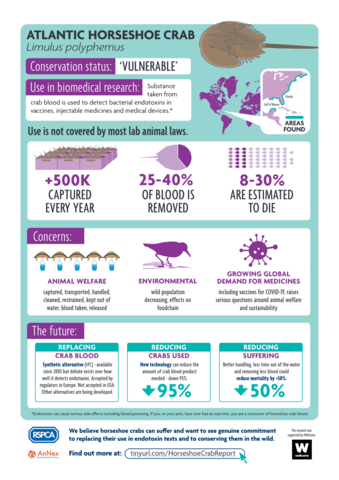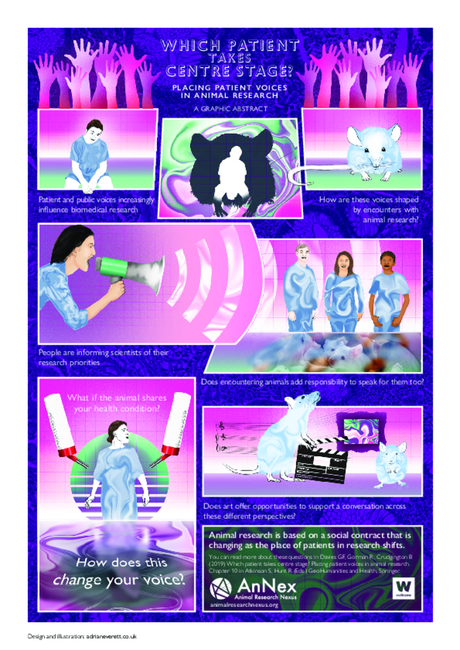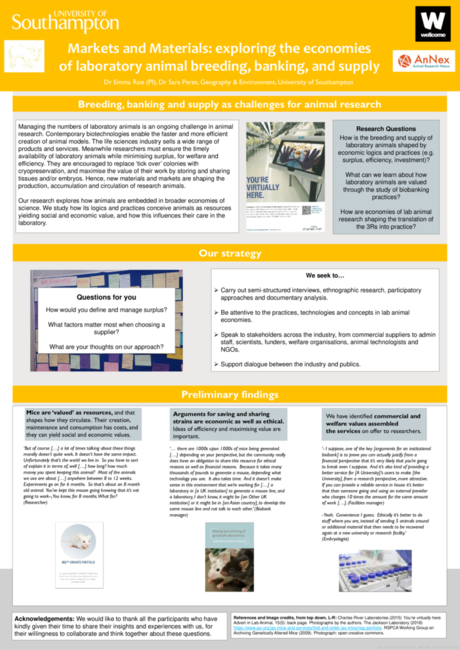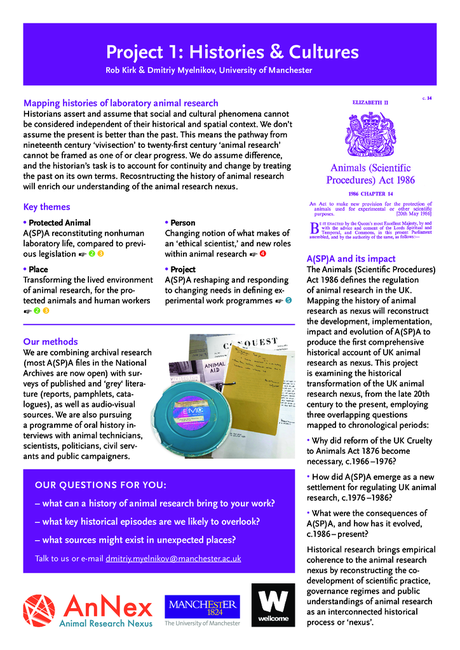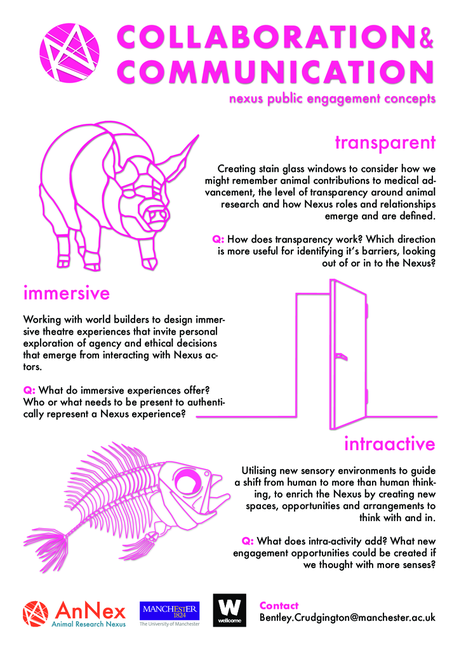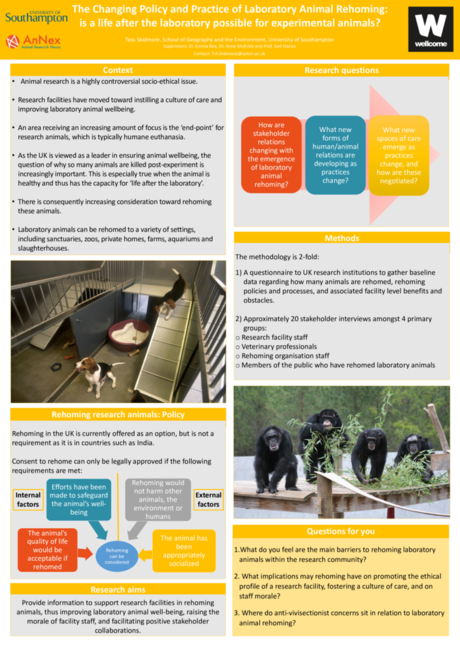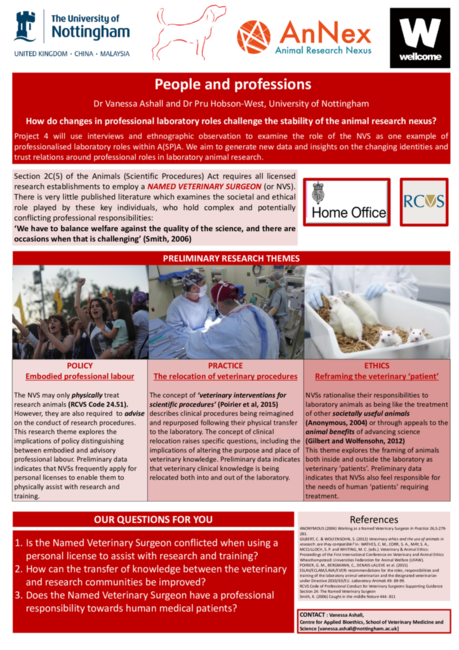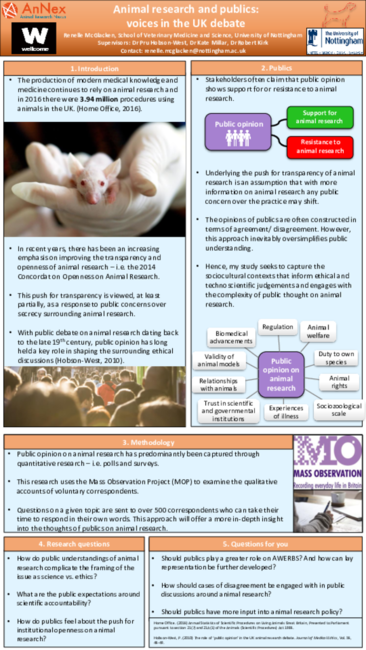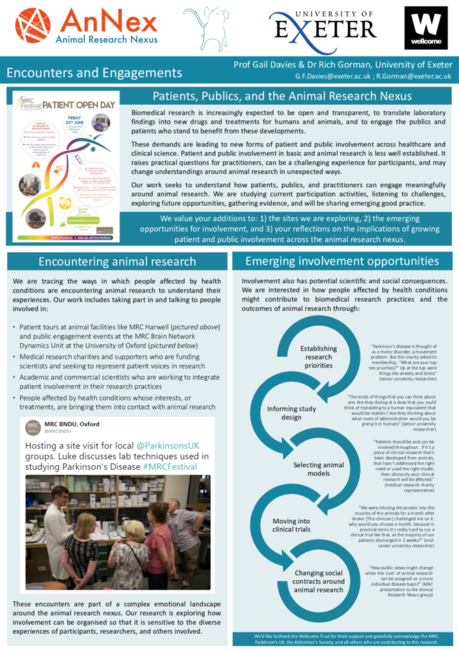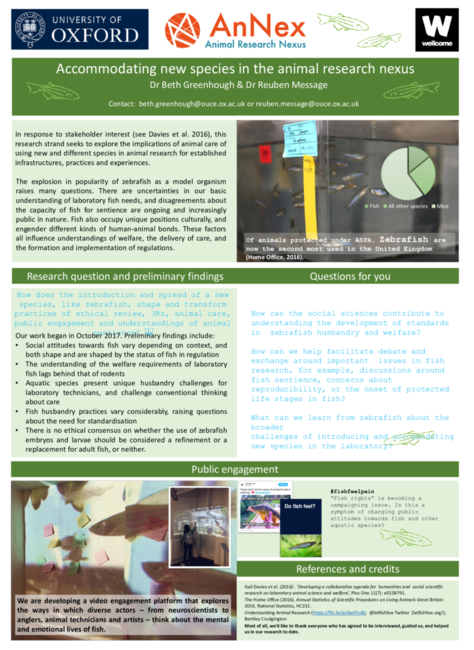Publications: Posters
Rich Gorman’s secondment to the RSPCA explored the social relations shaping the use of horseshoe crab blood within pharmaceutical endotoxin testing. This involved 13 stakeholder interviews, and has resulted in a stakeholder report alongside a peer-reviewed journal publication. Rich has also presented the research at industry conferences and academic seminars. This is the report and infographic produced for his research.
Part of the Animal Research Nexus programme involves exploring the changing relationships between people affected by different health conditions and animal research. Our new chapter explores how ‘patient voices’ are represented around animal research. And we’ve made it into a graphic abstract...
This poster discusses the management of animal numbers in our research examining the breeding, supply, and biobanking of lab animals within the economies of biomedical science.
This poster explains our work on the history of British laboratory animals, focusing on the origins, implementation, and impact of the Animals (Scientific Procedures) Act 1986 through newly-available archive sources, published literature, ephemera, and a programme of oral history interviews.
This poster presents through provocations from our public engagement approach, which seek to weave in new perspectives, allow new communities to form and meaningfully connect, so we may collaboratively face emerging challenges for science and society together.
This poster introduces investigations into the implications of laboratory animal rehoming on stakeholders, ethical and regulatory issues, and the relations people have with animals both inside and outside of the laboratory space.
The poster describes our focus on professional laboratory roles, using the example of the Named Veterinary Surgeon, exploring the complex and potentially conflicted responsibilities of these individuals.
This poster introduces work exploring how publics understand animal research using the written accounts of voluntary correspondents to the Mass Observation Project (MOP), which will seek to capture the sociocultural contexts that inform ethical and technoscientific judgements.
This poster explains our research exploring how patients, publics, and practitioners might engage meaningfully around animal researc and identifying how people affected by health conditions might contribute to the research practices that potentially involve animal research.
This poster explores the increase in popularity of the zebrafish in animal research in the UK, raising questions about how the species is incorporated into and transforms animal research infrastructures and practices of care and welfare.
